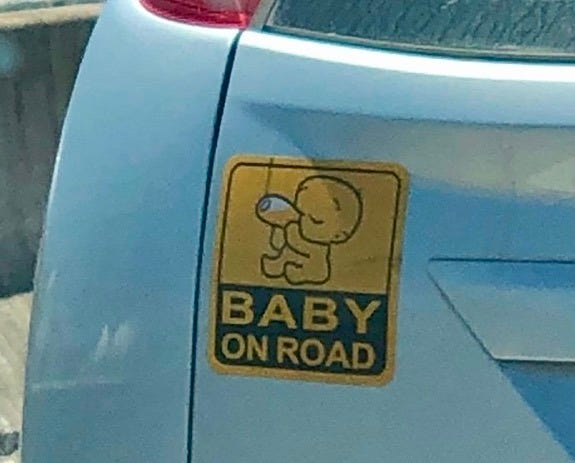The Wrong Way, Baby
Pueblo meets car
As I watch the good people of my adopted Andalusian town take to the American way of doing things—to the ready-made and the super-sized, the honey-basted and the crispy-fried—I’m often reminded of the old Virginia Slims slogan YOU’VE COME A LONG WAY, BABY, which touted a rank-smelling, carcinogenic habit as a badge of modernity. I might stand on a bench in the square, wave my ragged copy of Fast Food Nation in an end-of-days manner, and bark, ¡Cuidado! You will rue the day!, but I don’t want to get all evangelical about it, so mostly I keep my contrarian thoughts to myself, which is to say my notebook, where I can be as sulky, snarky, and/or apocalyptic as I like when I catch a new, imported practice bumping up against a native one.
Take driving. There were those who called it progress, but the upsurge in car ownership during Spain’s boom years created its own complications, some of them familiar to a resident American—congestion, exhaust fumes, bumper stickers—and others unique to the Andalusian way of life. A traffic jam in my adopted pueblo, for example, often has less to do with vehicular accidents or road construction than with a driver simply stopping their car in the middle of a busy street to socialize, in the lively Andalusian fashion, with a passing pedestrian, as though the driver himself—or herself, but usually himself, the men tending to have more time on their hands than the women in these parts—were a passing pedestrian. Because he is not in fact a passing pedestrian, but a motorist stopped in the middle of a busy street, the driver in question soon becomes the patently obvious cause of a traffic jam.
After a grace period—let Luis catch up with his cousin Paco, ¡por Dios!—the delayed motorists begin, not unreasonably, to honk their horns. Sadly for them, Luis is relatively new to car culture, and doesn’t recognize the horn-honking as having anything to do with him: He and Paco go on hashing out what went right at a recent local wedding or what went wrong at the recent Betis-Sevilla match. If and when Luis does recognize that the horn-honking has something to do with him, he might be hard pressed to cut short his chat with cousin Paco—instead of moving on down the road, he may very well lean out the window and launch a volley of impassioned Andalusian invective at the drivers he is holding up, à la ¡Me cago en la leche! ¡Hablamos de Betis, cojones! (Which is to say, “I shit in the milk! We’re talking about Betis, testicles!”)
A suitable relationship between car, driver, and pedestrian has yet to present itself in the smaller towns of Andalucía, and in the meantime a resident American might find himself sympathizing with the exasperated horn-honkers one moment and the leisurely horn-honkees the next. If the day is especially hot and the horn-honking especially insistent, a resident American might not sympathize with anybody remotely involved in the situation, and get to wishing that automobiles—and Virginia Slims, while we’re at it—had never been invented in the first place.
First published in Threepenny Review, Fall 2017

